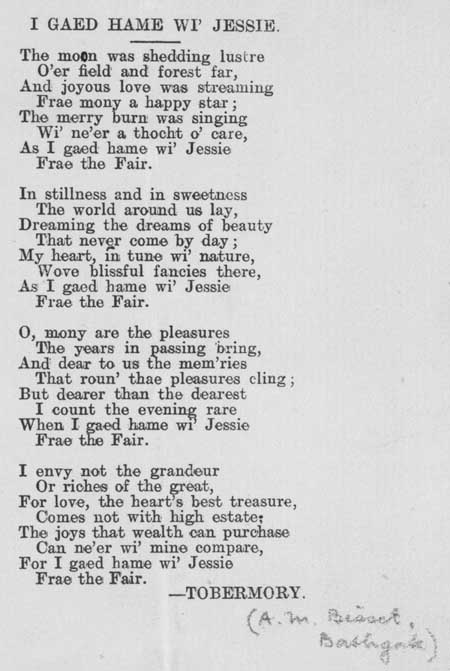Commentary
Verse 1: 'The moon was shedding lustre / O'er field and forest far, / And joyous love was streaming / Frae mony a happy star; / The merry burn was singing / wi' ne'er a thocht o' care, / As I gaed hame wi' Jessie / Frae the Fair.' The name 'TOBERMORY' is printed at the foot of the poem, but it is unclear whether this is the name of the author, or of the publisher, or of the place of publication. Beneath this, a pencil annotation has been added: '(A.M. Bisset, Bathgate)'. Again the significance of the name and place is not explained. For centuries, the agricultural fair has been an important and symbolic event in Scottish society and in Scottish writing. Many poems and novels record the annual fair as an event where people from a country and town would mingle, where alcohol would flow freely, where people from a traditionally austere background could lose their inhibitions, and where romance or aggression could take root with equal ease. In this poem, the fair takes on a magical aura for the narrator as he remembers the romance with 'Jessie' that began there. Early ballads were dramatic or humorous narrative songs derived from folk culture that predated printing. Originally perpetuated by word of mouth, many ballads survive because they were recorded on broadsides. Musical notation was rarely printed, as tunes were usually established favourites. The term 'ballad' eventually applied more broadly to any kind of topical or popular verse.
View Transcription | Download PDF Facsimile
|
 |
Probable period of publication:
1870-1890 shelfmark: RB.m.143(201)
 View larger image
View larger image
|


